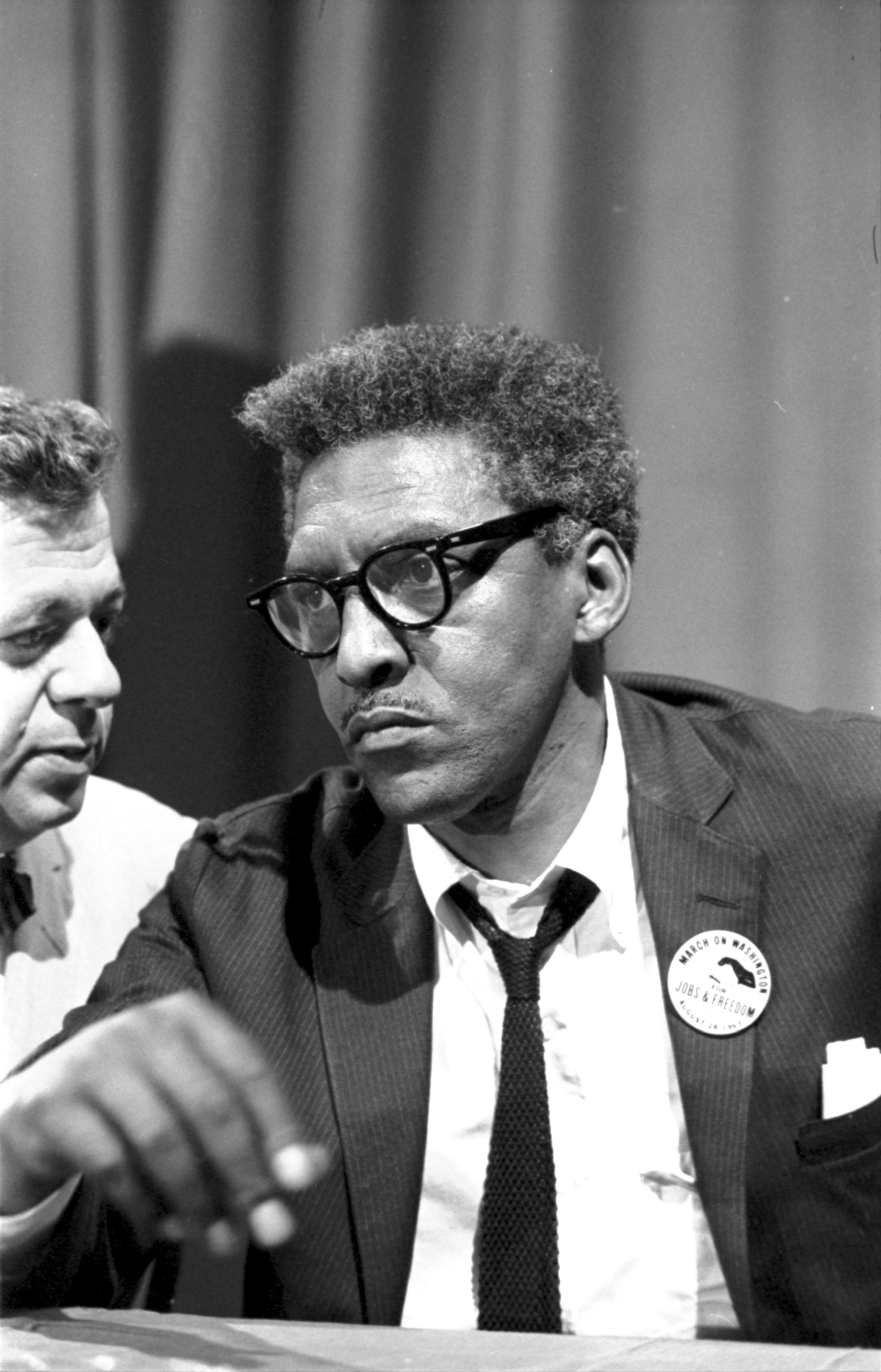 Today I saw a documentary about Bayard Rustin, a non-violent political activist who arguably started the civil rights movement with his actions in the 40s. This man did the same move as Rosa Parks back in 1947 and was the man who taught Martin Luther King, Jr. how to fully embrace non-violence. He also organized the 1963 March on Washington, the largest gathering of it's kind where MLK gave his famous speech. So I have to ask, why have I never heard of him until now?
Today I saw a documentary about Bayard Rustin, a non-violent political activist who arguably started the civil rights movement with his actions in the 40s. This man did the same move as Rosa Parks back in 1947 and was the man who taught Martin Luther King, Jr. how to fully embrace non-violence. He also organized the 1963 March on Washington, the largest gathering of it's kind where MLK gave his famous speech. So I have to ask, why have I never heard of him until now?The sad truth is this man has been kept out of the history books because he's gay. Even back in the 40s he was occasionally forced to work in the background because he was open and proud. But the fact that someone so inspiring can nearly disappear from memory because of one aspect of his life is not unusual. It's a trend I've noticed throughout my public education. Were it not for my name and theatre teacher, I would never have heard of Oscar Wilde, let alone about his works or trials. Leonardo da Vinci is too big to be ignored, but his "alleged homosexuality" is still controversial. Same thing goes for Shakespeare and Alexander the Great among who knows how many others. Even more modern events like the Stonewall Riots are impossible to find literature on. But even if I had to wait 21 years to hear about Bayard Rustin, I'm glad I did. He bridges the gap between race rights and gay rights, even saying in 1987 "The barometer of where one is on human rights questions is no longer the black community, it's the gay community. Because it is the community which is most easily mistreated." But that doesn't mean we wait around and hope for a better future. He also said that when you see an injustice you must act, against any odds, and you must act with your body to get things done. If you say "There's nothing I can do, I'm just one person," then you've accepted it and allowed it to happen. It all goes back to what I've been thinking about symbolic support, it may make you feel better but it accomplishes nothing. If we want equal rights we can't ask for it timidly and politely, we have to demand it. And if they refuse we have to react.
Bayard explained non-violence in a way that really clicked with me: The idea is not to avoid conflict, but to confront it; to turn a violent conflict into a creative conflict is the ultimate goal. I realize now that I have a responsibility to my community to never be ashamed of who I am, to stand up and fight injustice, and to ensure that my voice is heard. No matter what barrage of controversy, hatred, scandalism or misguided morality. Because it's going to take a lot more people like Bayard to get him into the history books. Perhaps then it will be easier to admit that a gay man can do great things.